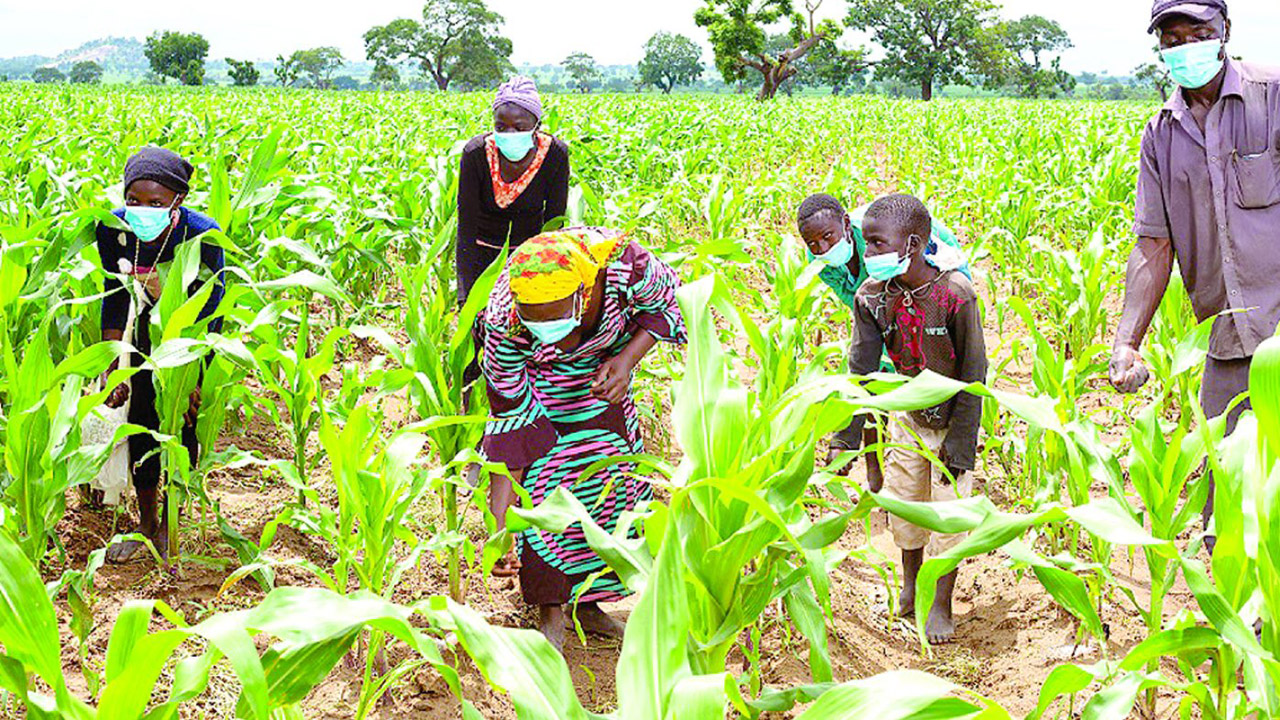
The Abia State Government has reiterated its commitment towards actualising its vision and mission in the agriculture sector, with the aim of boosting food sufficiency in the state.
The Commissioner for Agriculture, Professor Monica Ironkwe who said this during the flag-off of the 2024 farming season in Umuahia, said to achieve the target, the state will be embarking establishment of a database for farmers, provision of farm inputs and removal of fake middlemen in the value chain system.
While insisting that the state government should embrace, promote and develop agriculture in order to take its pride of place among its peers, the Commissioner further listed nine strategies to achieve this.
These include – establishing effective, processing and storage agro-produce facilities, medium feed mills that will produce feed in the state, collaborating with research institutes towards harnessing the advantages of improved seedlings and farm inputs.
According to her: “We will reinstate marketing boards concept, palm wine industry at Ariam- Ursaka, form primary and secondary cooperative society to drive the agricultural value chain, improve infrastructural facilities like road networks, electricity, power, encourage cluster farming and organise seminars and workshops among others.”
She urged all Abians to embrace, promote and develop agriculture. The Commissioner, said: “Agriculture as a profession, career and occupation, hosts or presents a lot of entrepreneurial outfits that all and sundry can engage in order to earn honest income, thereby diverting the youth’s attention from criminal tendencies, which pose security challenges to our socio-economic wellbeing and development.”
Firm advocates sustainable solutions for smallholder farmers
AS part of its commitment to fostering sustainable agricultural practices in the country, the British American Tobacco Nigeria Foundation (BATNF) has moved to address the challenges faced by Agripreneurs and create sustainable paths in the agricultural sector.
This was disclosed during the biennial Agribusiness Dialogue, which served as a platform for in-depth discussions and deliberations, where all participants, including government representatives, private sector stakeholders, and experts, convened to explore and analyse the strategies and initiatives necessary to drive the smallholder farming sector forward.
The dialogues session, centered on the theme, “Turning Challenges into Opportunities: Establishing Sustainable Strategies and Pathways for Smallholder Farmers in the Agrifood System,” which underscores the Foundation’s support for agribusiness and the need to grow sustainable agriculture in the country.
Executive Director, BATNF, Ololade Johnson-Agiri, said the foundation has remained committed on sustainable agriculture development and the improvement of livelihoods of smallholder farmers, their families, and communities.
She said: “Since the establishment of the BATN Foundation in 2002, we have been working determinedly to empower smallholder farmers through a range of programmess and initiatives. We believe that smallholder farmers are the key to unlocking Nigeria’s agricultural potential and ensuring food security for future generations.”
Vice-Chancellor, Federal University of Agriculture, Abeokuta (FUNAAB), Prof. Olusola Kehinde, commended the foundation for focusing on helping smallholder farmers in Nigeria succeed, while also acknowledging the challenges that must be addressed in order to achieve sustainable agriculture.
Kehinde further said, “The expectation is that this dialogue will proffer a more robust and adaptable strategy that could be deployed to sufficiently address the challenges facing smallholder farmers in the nation, and unlock their potential to contribute to economic growth within the agri-food system and beyond.”
Director, Enterprise Development Centre, Pan-Atlantic University, Nneka Okekearu, encouraged stakeholders to be intentional about advancing sustainable agriculture and supporting the well-being of farmers and rural communities.
“Our smallholder farmers are the backbone of our communities, producing over 80 per cent of Nigeria’s food and as we embark on this dialogue, let us recognise the pivotal role they play in feeding our nation and sustaining livelihoods. Today’s discussions are not mere conversations; they are seeds of change that, when planted and nurtured, will grow into pathways leading our farmers to sustainable success,” said Nneka.






